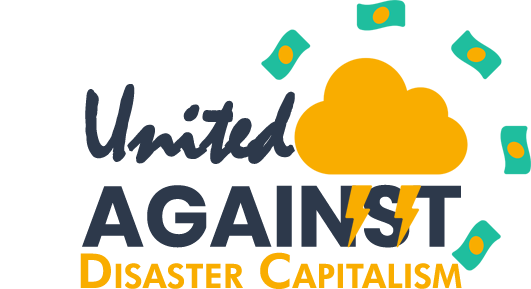Menu
Close
DCIC is a regional project led by The University of the West Indies, (UWI) through the Sir Arthur Lewis Institute of Social and Economic Studies, (SALISES), and is funded by the Open Society Foundations (OSF). The Stronger Caribbean Together Network was created through a project originally funded by the Global Challenges Research Fund, (GCRF).
The project is of extreme importance for the region because it aims at strengthening people’s resistance against a threat, that of disaster capitalism in the context of the state of continuous climate emergency in the Caribbean, that is real, material, and imminent. At the same time, the project is strategic because it contributes to the circulation, consolidation and strengthening of the Caribbean people’s voices and visions of the future of the Caribbean. Moreover, it offers to provide regional and international visibility and support at the time when human rights and environmental defenders in the Caribbean are increasingly the object of political, moral and physical violence. The project is first and foremost for the Caribbean people who are struggling for the preservation and regeneration of their territories, but also for the international community that is interested in providing support and has difficult in accessing these realities.
The project addresses the problem of disaster capitalism by giving visibility to the multiple cases where it is happening and has happened in the past, and transforming knowledge and transparency into an opportunity for people-to-people education, dialogue, learning, and solidarity.
The Mission Statement of The UWI, is to advance learning, create knowledge and foster innovation for the positive transformation of the Caribbean and the wider world. The UWI has as part of this mission recently signed, in September 2020, a landmark Memorandum of Understanding with the Open Society Foundation, to advance the work on climate change, racial justice and a deepening of democracy.
The UWI-led Global University Consortium brings together universities representing six geographic regions with a focus on coordination of climate action among universities, partner development, global project collaboration, and knowledge brokerage and sharing.
Pioneering climate action across the region for over a decade, supporting communities and environments through research, teaching, partnerships, and advocacy.
The Sir Arthur Lewis Institute of Social and Economic Studies (SALISES) is a Research Centre of The University of the West Indies (UWI). SALISES was founded in 2000 through the merger of the Institute of Social and Economic Studies (ISER) and the Consortium Graduate School of Graduate Studies (CGSS). Since its inception as ISER in 1948, SALISES has developed and maintained a strong culture of quality research that has been used throughout Jamaica and the Caribbean for program and policy development. Research fellows trained in research, policy formulation and analysis are employed by the Institute. SALISES teaches core development studies, research methodology, and monitoring and evaluation courses. SALISES has designed and implemented a number of feasibility assessments, baseline studies, impact assessments and also provides training workshops and graduate courses with important policy-oriented research components. SALISES has coordinated and collaborated on several regional and national research activities and the Institute’s research has been funded by several major international and regional agencies including United Nations Development Programme (UNDP), the World Bank, the United Nations Children’s Fund (UNICEF), the United States Agency for International Development (USAID), Pan American Health Organisation (PAHO), Department for International Development (DFID), Family Health International (FHI), and the Caribbean Development Bank (CDB). Institutional and individual research projects have involved the use of several research methodologies, interdisciplinary and multidisciplinary approaches.
Dr. Northover has been a member of the University since 1997 and is a Senior Fellow (above the bar) at The Sir Arthur Lewis Institute (SALISES). Dr. Northover, is a development economist and race critical theorist, who has led research on issues related to the question of rural vulnerability and resilience in the face of climate change and neo-liberal forces of globalization, with special reference to the sugar industry as well as youth and gender dynamics. She chairs the research cluster on sustainable rural and agricultural development and has conducted outreach events, conferences and innovative projects to sensitize and pull together stakeholders on the challenges facing rural peoples and spaces given the legacies of colonialism on rural development as shaped by race, class and gender and the ongoing processes of neo-colonialism and disaster capitalism.

This project was financed by a grant from the Open Society Foundations to the University of The West Indies, under the stewardship of the Sir Arthur Lewis Institute of Social and Economic Studies (SALISES)
Bernard Lodge Farmers Group
Progressive Reform Movement
Open Society Foundations
All Rights Reserved – strongercaribbeantogether.org 2022
All Rights Reserved – strongercaribbeantogether.org 2022